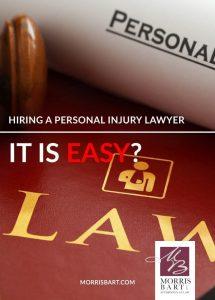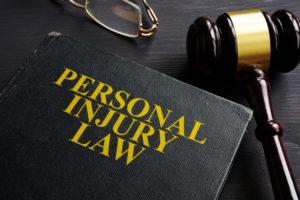
Most personal injury cases settle out of court and never go to trial. This is usually in both parties’ interests because it reduces the time investment and related fees. However, plaintiffs should take their cases to court in some situations.
The trial process is more than just your lawyer versus the defendant’s attorney trying to one-up each other in front of the jury. The process can be long and stressful unless you know what to expect at game time.
What Is the Civil Trial Process?
Lawsuits have many stages. By the time a case goes to trial, the civil action has already been through:
- Initial filing and response
- Discovery
- Depositions
- Identifying experts
- Pretrial motions
Some jurisdictions also require mediation or other dispute resolution before putting the trial date on the court docket. At this point, preparing for trial is all that is left to do, and this can begin months before the trial date. The process varies widely depending on the attorney and the case type, but detailed preparation is common.
Once a trial date arrives, many laws and court rules will govern what happens next. Some trials may have only a judge and no jury, but generally, the following steps occur:
Jury Selection
At this stage, both sides will question jurors and strike those who may appear biased. It could take several hours to several days to select the jury.
Opening Statements
Your attorney and the defendant’s attorney will summarize their cases and give the jury an idea of what to expect.
Presenting Your Case
Your legal team will begin the trial. Because the plaintiff, also known as the claimant or victim, has the burden of proof, their lawyer goes first when presenting evidence to the jury.
Presenting the Defense
After your attorney rests their case, the defense will present evidence to try to overcome the allegations your advocates raised.
Closing Statements
During these statements, attorneys for both sides will do their best to summarize the evidence and key points to get the jury to rule in their favor.
The Verdict
After the jury deliberates, a verdict will be announced. In a personal injury trial, usually, this verdict will address the defendant’s liability and the amount of the plaintiff’s damages. If there is no jury, the judge will announce their decision.
For a free legal consultation, call 800-537-8185
How Long does a Personal Injury Trial Take?
The personal injury lawsuit process is different for everyone. A judge trial of a simple auto accident claim could take less than a day. This is especially true in cases where the fault is well-established, such as most rear-end collision claims.
In contrast, a trial can last days to weeks if it involves a complicated case where the parties are in dispute over accident liability, and the plaintiff has substantial injuries. The judge is responsible for keeping the courtroom process moving efficiently. Most personal injury trials last only a couple of hours, although a day or two is not uncommon.
Most Personal Injury Cases Settle Before Trial
It is important to remember that most legal claims arising from injuries and accidents do not reach a civil court trial. The complainant and defendant usually resolve the matter through a negotiated settlement. In many situations, a settlement occurs even before the injured party must consider filing a lawsuit.
During the settlement process, the plaintiff agrees to give up the right to seek further legal action based on the accident or their injuries. In exchange, they will receive an agreed-upon sum of money from the defendant or their insurance company.
Settling is usually a smart decision when:
- The defendant or insurance company offers a fair payout.
- Your case is not strong.
- Your damages are relatively small.
- The settlement offer reaches the max limits of the insurance policy.
Your attorney will manage this process for you and offer advice about when to settle, when to continue with negotiations, and when it may be time to sue.
When Should a Plaintiff Consider Going to Trial?
Sometimes, taking a case to trial is an intelligent decision. This may be true if:
- The defendant and their insurer are not willing to settle.
- They are offering an unfair settlement, often undervaluing emotional distress.
- The plaintiff may be entitled to punitive damages, which can be substantially larger than actual damages.
When determining if you should settle or go to trial, your lawyer will consider jury verdicts and settlements related to cases that are similar to yours. As part of this process, you will work together to evaluate the strength of your case and compare the potential costs of litigation to the possible verdict and financial recovery.
It may also be necessary to sue if the deadline to do so is approaching. Where there is some variation based on specific circumstances in some cases, you generally only have a limited time to sue in each state. Examples include:
- Alabama: Two years (Ala. Code § 6-2-38)
- Arkansas: Three years (Ark. Code Ann. § 16-56-105)
- Louisiana: One year (La. Civ. Code Art. 3492)
- Mississippi: Three years (Miss. Code Ann. § 15-1-49)
Click to contact our personal injury lawyers today
Morris Bart, LLC, Provides Free Consultations for Injured Victims
If you are recovering from accident injuries, connect with the Morris Bart law firm for a free case evaluation. Our attorneys will go the distance on your behalf. Our trial lawyers work on a contingency fee basis and are not afraid to go in front of a judge and jury with any case we handle.
We have 15 locations and represent clients throughout Louisiana, Mississippi, Alabama, and Arkansas. Call us today to talk with a lawyer and get started: (800) 537-8185.
Questions?Call 800-537-8185
to find a Morris Bart office near you.





